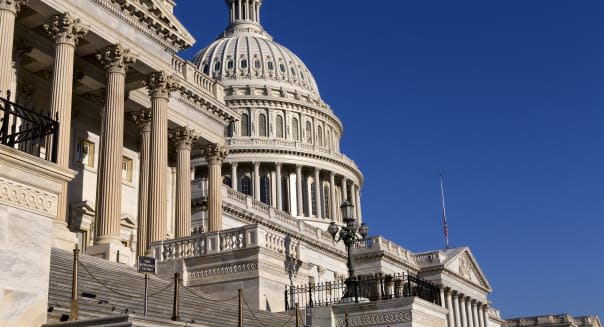Brawl in U.S. Congress -- Should the World Care?

By Dhara Ranasinghe
U.S. lawmakers are at it again -- bickering over federal spending. For global markets the battle is important but not as significant as the impending battle over the U.S. debt ceiling, analysts say.
Budget spending must be agreed by Congress before Oct. 1 -- next Tuesday -- to prevent a government shutdown which could involve federal employees facing unpaid temporary leave and a possible delay in the payment of military personnel. Meanwhile, the debt ceiling must be extended later in October so that the U.S. Treasury can continue to borrow money and honor its sovereign debt obligations.
Most analysts expect a deal on the budget to be reached, even if it is at the last minute, since lawmakers are unlikely to want to risk any fallout at the 2014 congressional elections from allowing the government to shut down.
"I think markets will react in a sensible fashion over the next few days recognizing that we'll get through this [federal budget debate]," Harold Ford Jr., a managing director at Morgan Stanley and former U.S. congressman said.
"The real question is if we reach the same conversation around the debt ceiling. America defaulting [would have] a greater impact than the short-term impact on markets from the [budget] conversation we're having right now," Ford told CNBC on Wednesday when asked whether a government shutdown was a realistic prospect.
The Treasury has said the U.S. debt limit of $16.7 trillion will be hit in mid-October, with Treasury Secretary Jack Lew saying there is no plan in place to pay all of the government's bills once that threshold has been hit.
%VIRTUAL-article-sponsoredlinks%"The subdued tone to the markets right now is probably because of the debt ceiling, but I don't think we'll get such severe downward pressure that we got in 2011 with the downgrades to the U.S. credit rating," Geoff Lewis, global market strategist, at JPMorgan Asset Management told CNBC Asia's "Cash Flow" on Thursday.
"At the moment, it is all theatrics. I think the Republicans realize that if they disrupt government for no good reason, it could come back to haunt them in the next mid-term elections," he added.
On Friday, House Republicans passed a resolution that would fund the government until mid-December but not "Obamacare" -- President Barack Obama's health care reform law.
"In the near term, the debt ceiling debate and the continuing [budget] debate is going to cast a cloud over markets and in this environment it is safe havens such as the yen and the Swiss franc that do okay," said Nick Verdi, director of foreign exchange strategy for Asia-Pacific ex-Japan at Barclays.
According to Chris Weston, chief market strategist at trading firm IG, there's one reason why investors should worry about a potential U.S. government shutdown.
"If we do see a shutdown, then subsequently government produced data will be held back from release, and thus we won't get the Oct. 4 non-farm payrolls, which is so important to the taper jigsaw; clarity and uncertainty would get that little bit hazier," Weston said in a note.
The Federal Reserve last week took markets by surprise by not delivering a widely anticipated scaling back of its asset purchase program, leaving markets speculating once more about just when Fed tapering will begin.

